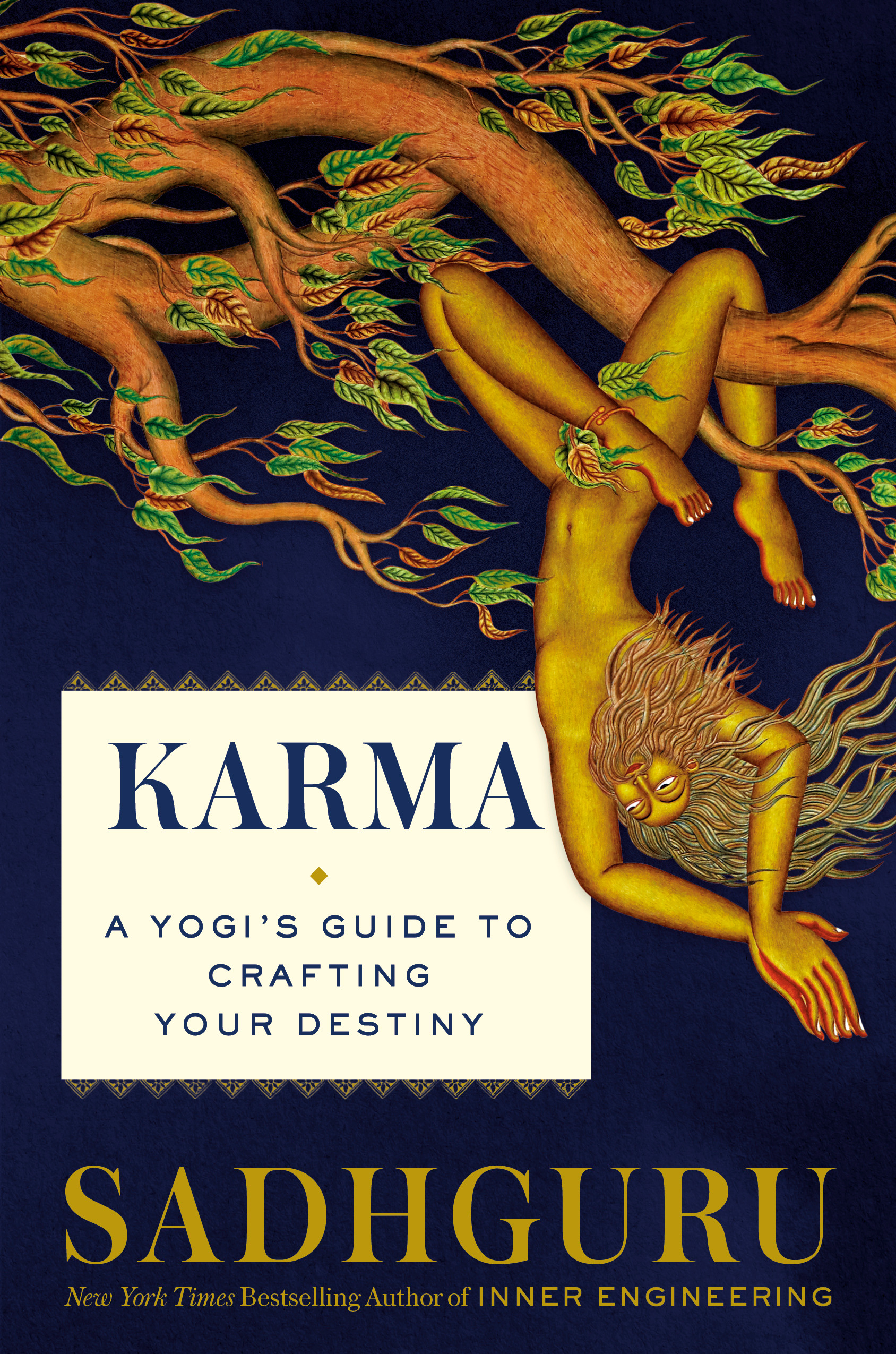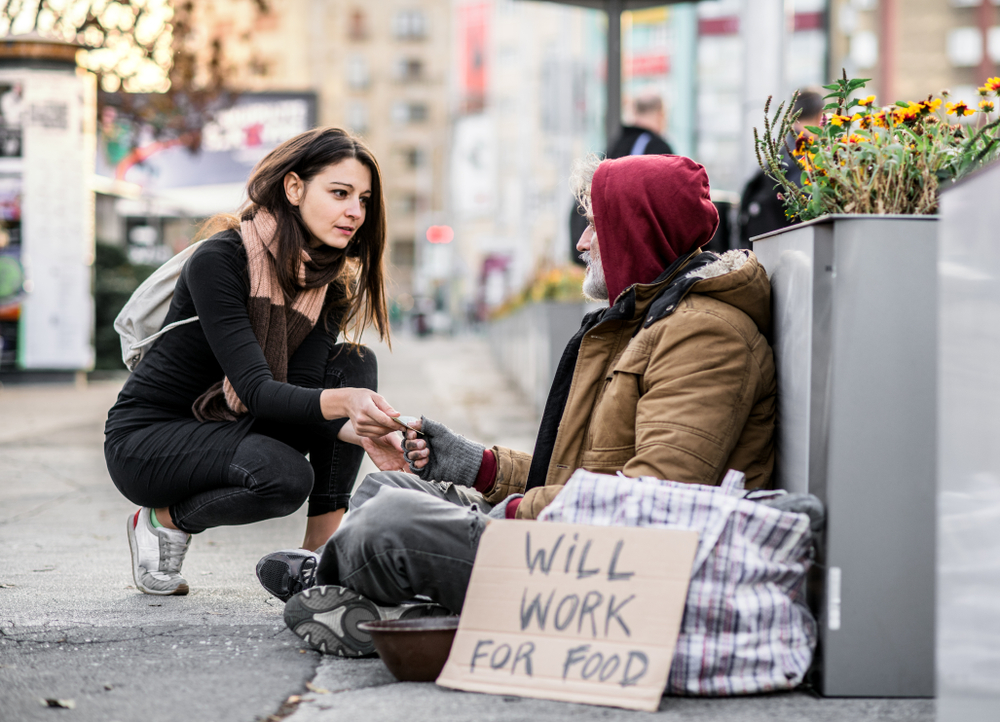Why didn’t the universe create everyone equal? Why are some disabled, and others able-bodied? Why are some poor, and others rich? If there is a God, why didn’t he create everyone equal? What is the point of all this terrible inequality?
These are questions that have plagued human beings since the dawn of time.
Now pause and examine this with absolute clarity.
If you do, you will see that the primary cause of human suffering is not physical handicap or poverty. The cause of human suffering is oneself.
Let us first make the distinction between pain and suffering. Pain is physical. Pain is produced whenever there is any injury to the body. Pain is the body’s way of alerting you that something is wrong, that action must be taken. Pain is useful. It is a valuable wake-up call. Suffering, on the other hand, is psychological. It is produced by you. It is a hundred percent self-manufactured. You don’t have a choice about being in pain, but you do have a choice about suffering. You can always choose not to suffer.
A thousand years ago, people all over the world lived quite happily in modest dwellings. That was not a problem. The problem today is that someone lives in a mansion, and someone else lives in a one-bedroom apartment. That is the source of the latter’s suffering. Someone has three cars, and someone else has one. That is the source of the latter’s suffering. Someone vacations abroad, and someone else doesn’t. That is the source of the latter’s suffering.
So it is not the physical situation that causes misery. It is the way you react to it. Your karma is not in what is happening to you; your karma is in the way you respond to what is happening to you. Human beings are capable of suffering just about anything. Someone cannot get a job, so they suffer. Someone is given a job, and now they suffer even more. Someone isn’t married, so they suffer. Someone gets married, and they are in agony! Someone has no children, so they suffer. Someone has children, and so they are in constant torment. Your suffering is not because of your circumstances. Your suffering is because of the way you have made yourself. And that is what you need to look at.
What most people call luck is just your ability to be at the right place at the right time. Many of your capabilities are still unconscious, so you do not have complete control over the kind of circumstances you attract. But there is something over which you do have control: how you react to what happens to you.
Maybe you win a lottery ticket today, but, still, how happily you live is something you decide. A poor man might be ecstatic if he wins a million dollars. But a rich man might have much more in his bank balance and still be unhappy. So luck alone does not determine your happiness.
Generally, the word karma is used in a rudimentary way to suggest that you did something bad and so bad things will happen to you. This is a very limited and simplistic way of looking at life. Karma has nothing to do with moralistic categories of good and bad; it is related only to cause and effect.
If a man comes to you now and complains that his heart is clogged up, is it because he committed some terrible deeds in his past? No. It is much more likely that he lived irresponsibly, ate and drank improperly, and messed up his system. So this is bad karma in its own way, because he lived without the necessary understanding about how to treat his system. Ignorance is also a karma. As action is karma, inaction is also karma!
The karmic substance within you may happen to contain all the necessary ingredients to create suffering. Perhaps you planted all these ingredients unconsciously in your past. So what can you do about this today? The answer is simple: don’t manufacture suffering for yourself today! Maybe terrible things happened to you yesterday. Maybe you lost everything that is precious to you. But this morning when you get up, you still have the choice not to manufacture suffering for yourself. Yes, the ingredients of misery are present. They are waiting, perhaps even tempting you. But they cannot become suffering by themselves.
Suffering has to be freshly baked every day. In other words, your karma cannot turn into suffering without your cooperation. Once you are aware, that is the end of your suffering.
So the source of your misery is not your past actions. The source of your misery is how you’re processing the imprint of the past now. You may be carrying around a sacksful of stinking garbage. Either you can smear yourself with it and get terribly miserable, or you can make good manure out of it and create a wonderful garden.
Karma is the seed. What you are going to make out of this seed is entirely up to you. If I am given a packet of assorted seeds and I throw them all into my garden, perhaps all of them will sprout. Some of the mango seeds will yield very sweet fruit. But there may be some bitter seeds, too. The parthenium grass may be an unwelcome weed. And yet I still have the choice to pull it out. I can remove what is superfluous and keep the rest.
That is how your food is grown every day. A large part of agriculture is just weeding. There are actually more weeds than plants growing even in your own garden. If you keep weeding, you will have a garden. If you sit back defeated, you will have a patch of weeds.
The same holds true for your life. You have your seed karma. But you also have your weeding karma. This is where volition comes in. This is where intention becomes paramount. If you decide not to perform your weeding karma, your life will be just an overgrown wilderness. If you choose to perform this simple function, your life could yield an incredibly rich harvest.



